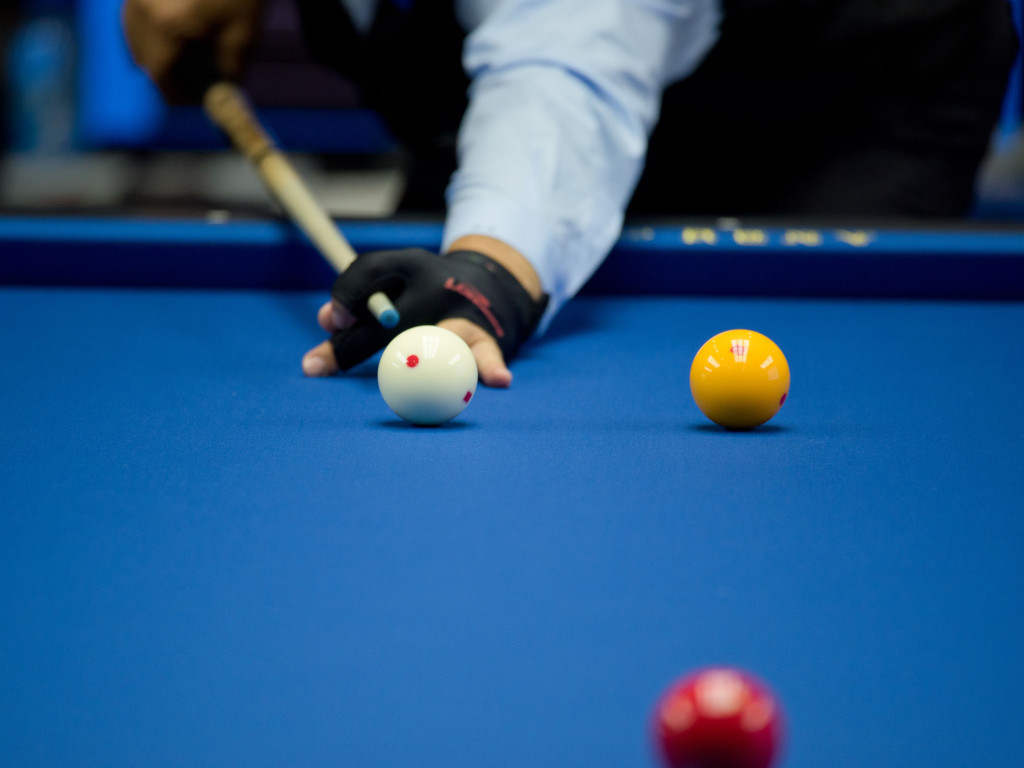Step into any billiards hall and you’ll notice something interesting: not every match is won by the most technically skilled player. More often, it’s the calm, composed, and quietly confident individual who takes control of the game. This isn’t a coincidence. In billiards—whether it’s three-cushion, English pool, or snooker—your mindset can be just as important as your shot.
In this article, we'll delve into the psychological side of billiards, explore common mistakes players make in their mental game, and how to develop a stronger mindset to help you perform at your best in crucial moments.
Why Billiards Is as Much Mental as Physical
On the surface, 3-cushion billiards appears to be a game of geometry, angles, and spin. But once you spend enough time at the table, you’ll realize another opponent is lurking in the shadows: pressure. The pressure of a simple game of billiards should be normal. And a single mistake can cost you the nerves of an entire set. Deep down, a voice whispers, "Don't miss this one!"
This inner dialogue shapes every shot you make. If your mindset isn't stable, even the best cue in the world can't save you. As the saying goes, "The table doesn't lie—it simply reflects the player's mindset."
Common Mental Mistakes Players Make
Just as technical errors need to be avoided, there are also mental pitfalls that can quietly sabotage your performance. Here are some of the biggest ones:
1. Overthinking the Simple Shots
Ironically, it’s often the “easy” billiards that get missed. Why? Because players start over-analyzing, worrying about the outcome instead of trusting their training. It’s classic paralysis by analysis.
How to avoid: Simplify your thought process. See the path, trust your stroke, and let it flow. The practice you’ve put in is already in your muscle memory—rely on it.
2. Letting One Mistake Spiral
We’ve all been there: you miss an easy chance, frustration sets in, and before you know it, two or three frames have slipped away. It’s like dominoes toppling—one mistake can lead to others.
How to avoid: Learn the art of the reset. Take a deep breath, chalk your snooker cue, and treat the next shot as if it’s the first of the match. Short memory, sharp focus.
3. Playing Your Opponent, Not the Table
In competitive matches, it’s tempting to get caught up in what your opponent is doing—whether they’re stringing together runs or trying to rattle your confidence. But losing focus on the table is a recipe for errors.
How to avoid this: Remember, 3-cushion is ultimately about solving the puzzle in front of you. Your opponent is just a bystander when it’s your turn. Keep your eyes, and your mind, on the angles and the cushions.
4. Chasing Perfection
Some players set excessive standards for themselves, expecting every shot to be flawless. When reality inevitably falls short, their confidence crumbles.
How to avoid this: Accept that mistakes are part of the game. Even great players make mistakes. The difference is, they don’t let it define their match. Aim for progress, not perfection.
Building a Winning Mindset
So, what separates a mentally strong 3-cushion player from the rest? It often comes down to habits—little routines that reinforce confidence and calmness. Here are a few to try:
- Pre-match Visualization Practice
Many top players “play the match in their minds” before they strike the first ball. Visualizing smooth strokes, precise cue ball paths, and calm execution primes the brain for success.
- A Pre-Shot Routine
Perseverance fosters confidence. A small ritual—whether it's chalking your pool cue, adjusting your stance, or taking a deep breath—signals to your brain that you're ready. It can distance you from nerves and make stressful situations seem familiar.
- Positive Self-Talk
It might sound cheesy, but words matter. Replacing “Don’t miss” with “Slow and steady” can help your focus away from fear and towards action. Talk to yourself like a coach, not a critic.
- Embracing Pressure
Rather than viewing pressure as a threat, consider it as a privilege. After all, pressure only exists when something meaningful is on the line. It means you're in the game, competing for something worth winning.
Why This Matters Beyond the Table
One of the most rewarding aspects of 3-cushion billiards is that its lessons reach far beyond the carom table. Managing nerves, bouncing back from mistakes, and keeping calm under pressure are life skills as much as game skills. Whether it’s a presentation at work, a difficult decision, or daily stress, the same mindset tools apply.
At its heart, 3-cushion isn’t just about strokes and cushions—it’s about discipline, resilience, and mental clarity. The right mindset won’t guarantee you every point, but the wrong one almost always guarantees defeat.
The next time you step up to the table, remember this: your cue delivers the stroke, but your mind directs the hand. Master both, and not only will you win more matches—you’ll also enjoy the game at a deeper level.
So when the pressure creeps in, pause and remind yourself: you’re not just playing billiards, you’re competing against yourself. And that’s the most important game of all.

